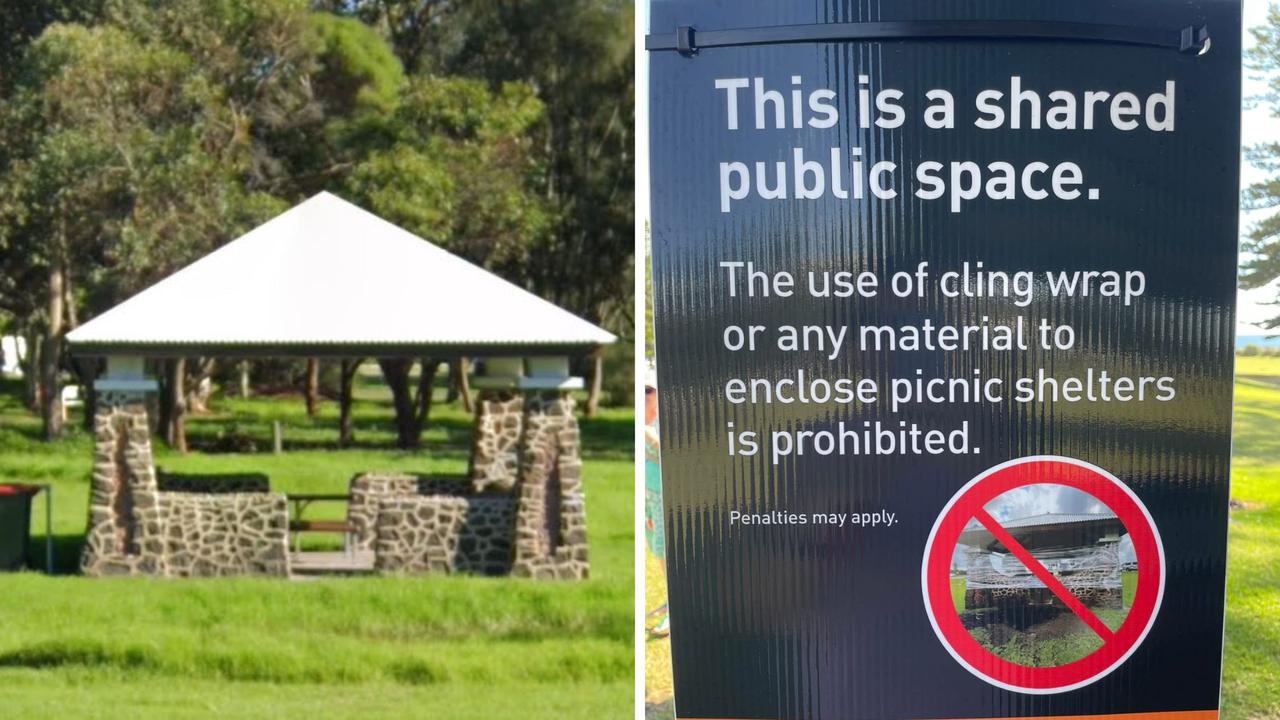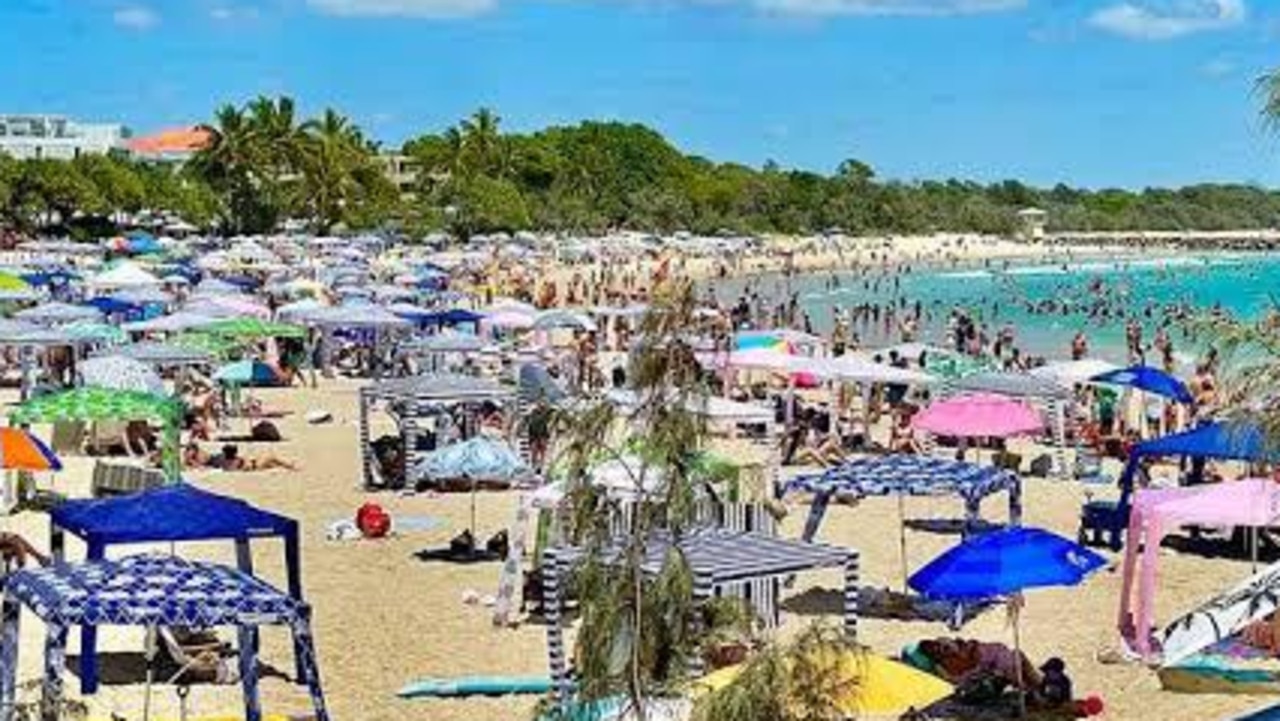The family who live in isolation 11 months of the year
MOST of us have had the daydream of getting away modern life and going off grid. But this family has taken it to the next level.
Outdoors
Don't miss out on the headlines from Outdoors. Followed categories will be added to My News.
AT ONE time or another, we have all had the daydream about throwing in the towel and going off grid.
Imagine moving away from the stress of modern life to a world where you’re primary concerns include food, shelter and producing enough energy to sustain a remote lifestyle.
While it may be a fleeting thought for some of us, moving to a life of isolation became a reality for David and Romey Atchley 20 years ago.
The pair, both 45, who call a remote patch of Alaskan wilderness home, have raised their two children off the land and with little or no electrical devices to assist.
Appearing on Tuesday night’s episode of Insight on SBS, Mrs Atchley said she had a burning desire to live off the land — and so she and her husband made it a reality.
“Growing up I was really interested in living off the land,” Mrs Atchley told Insight host, Jenny Brockie.
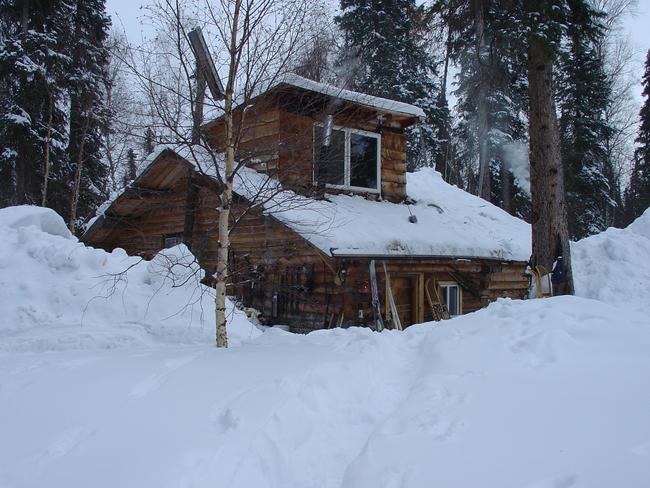
“I had this desire to have space around me and really think about life.”
The pair have two children. Zack, who moved to Fairbanks, Alaska when he was 17 to be closer to civilisation, and Sky, 14, who still lives with his parents.
“I never considered myself as isolated,” Mr Atchley explained of his living situation.
“I knew we were remote, but for me it was about having the quiet and hearing my own mind without the noise of the town.”
The Atchley’s live about 160km from the closest town, Ruby, which has just 160 residents. After spending 11 months of the year in isolation at their home, the trio take a trip to town to do a grocery shop which needs to feed them for the rest of the year.
“The shopping spree we do once a year is pretty extreme,” Mr Atchley said.
“We buy everything for a year and we buy all the supplies and we box. They barge it down to Ruby for us … and it usually takes a couple of trips. But once it’s here, you are good for the year.”
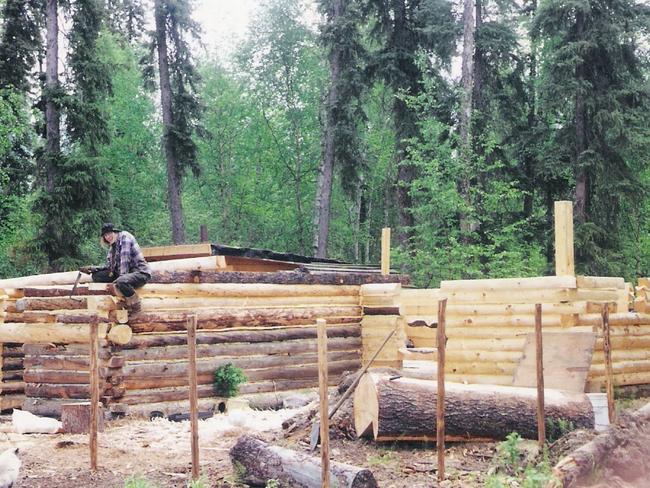
Sky, who has been homeschooled his whole life after being born at the remote home, says while life in the Alaskan wilderness isn’t easy, he wouldn’t have it any other way.
“A lot of other teenagers would probably think it’s not cool to be around your parents,” he said via Skype, after having internet installed in October 2017.
“When you live this close to each other in the middle of the woods and you’ve been here for a long time … they’re not just your parents … they are your best friends because you’re all alone with them.
“I think I’m a lot happier here than I would be anywhere else. It’s pretty and it’s nice being by yourself sometimes.”
Despite having the internet installed late last year, Sky says he still doesn’t have much contact with the outside world and estimates about a week-and-a-half of contact with other kids each year.
“Growing up with my parents, sometimes kids seem a little childish,” he said of his encounters.
“They care about things that aren’t that important sometimes.”
Eating a lot of moose meat, and purchasing cans of produce, from evaporated milk to tomato paste, alongside rice, sugar and beans, the Atchley family also hunt black bears, wolves, rabbits, ducks and beavers, and make jam out of rosehips and lingonberries.
“I’m not very fond of the food in town,” Sky said of his yearly trips to a restaurant or cafe.
“Always seems like there’s something wrong with it … I think maybe my tastebuds are stronger than normal.
“We’re used to making everything from scratch out here,” Mrs Atchley said.
“So when he (Sky) gets to town and wants a sandwich … for someone to hand him white bread it doesn’t seem like bread to him after eating homemade wholewheat.”
Mr Atchley said he and his family will spent 11 months of the year in isolation, and they’ve learnt how to deal with the “intense” nature of the Alaskan wilderness.
“As far as face-to-face, usually we’re out here 11 months and then we go to town for one month a year,” he said.
“Occasionally a pilot might land out here, somebody from Fish and Wildlife, but a lot of years might go by before another visit.
“Otherwise we have had a satellite phone since a little while after Sky was born and we could send emails to people and have communicated that way over the years.”
According to the BBC, who visited the Atchley’s home in 2017, the family spend the shorter winter days doing carpentry, cleaning and repairs. After supper, they fill the rest of their day with talking, guitar playing and writing before going to bed.
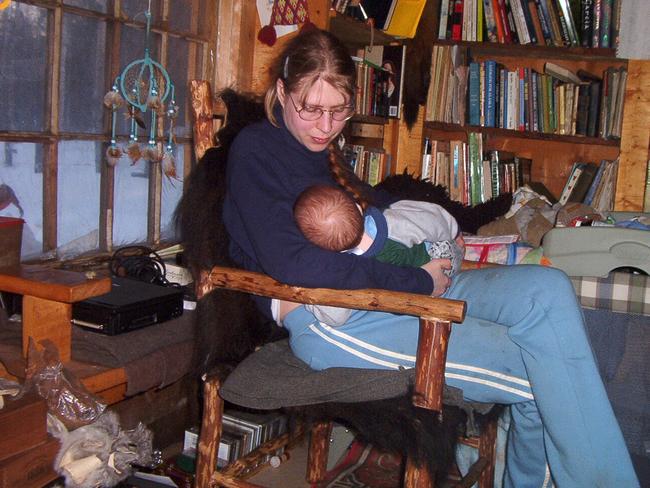
When it comes to making money, Mr Atchley will sell tanned hides, build log cabins or take work in the local gold mine, about 160km away.
But according to the BBC, living off the land and using solar power enables the family to survive on just US$12,000 (AU16,950) a year.
For medical assistance, Mr Atchley said they will only call in a light aircraft in extreme circumstances — meaning most accidents or illnesses are dealt with in-house.
“We have a lot of books around here, surgical tape and antibiotics,” he said.
“We have a pretty good medical kit and knowledge. But if it’s a big emergency, a heart attack, broken leg, it would probably be, in favourable conditions, you might be to a hospital in five hours at the best.
“But if it’s 50 below and pitch dark in the middle of winter, your fate’s in your own hands.
“It’s pretty intense out here in general. But you learn how to put it in the back of your mind and only deal with what’s happening instead of the fears of what could happen.
“You don’t want to be the guy that’s too late calling for help … but financially, living off the land doesn’t make you real rich. So calling for help it can really set you back. But you don’t want to lose your life over a decision like that.
“So we have been at the cusp of those type of decisions.”
Mr Atchley, who is now 53, says his son will get a few hours of schooling in each day. But being in the wilderness, both he and his wife focus on skill-based learning, such as mastering maths through cooking or carpentry.
While the remoteness of their lifestyle did worry Mrs Atchley initially, her husband said he wouldn’t want it any other way.
“When you’re isolated like this with each other, your relationship is everything,” he said.
“You can’t blame a grumpy boss or bad traffic. If there’s a mood in the house it’s one of us three.
“During the decades of living out here you spend a lot of time working on your relationship because in isolation you truly create your own reality. When you have the ability to make your wife slump or make her smile, what are you going to choose? That makes the rules for us. How do we all get along better and when you have three people who all care for each other, why do you need an authority figure that’s going to exert rules and lord them over? “We’re all just trying to get along and we all love each other.”
The Atchley family will appear on Tuesday night’s episode of Insight on SBS at 8.30pm.
Originally published as The family who live in isolation 11 months of the year


